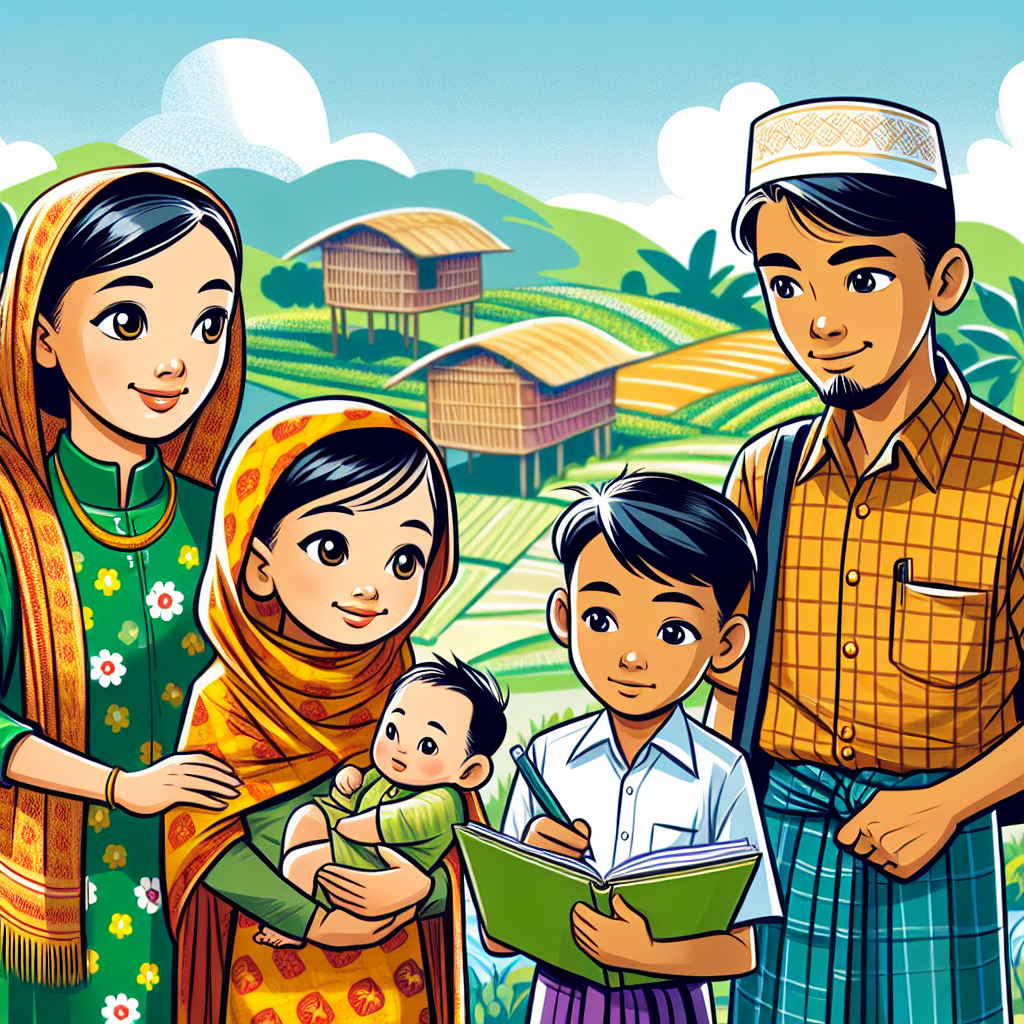UN Raises Alarm Over Rohingya Crisis Amid Myanmar Conflict
The UN's human rights chief has expressed deep concern for the Rohingya community in Myanmar following reports of killings amidst fighting between the military government and the Arakan Army. Both sides are accused of severe human rights violations, with fears of renewed violence reminiscent of the 2017 crisis.

- Country:
- Thailand
The UN's human rights chief joined a chorus of concern on Friday for members of Myanmar's Muslim Rohingya ethnic minority after many were reported killed in recent fighting between the military government and the Arakan Army, an armed ethnic rebel group.
According to a statement from the Geneva office of the UN High Commissioner for Human Rights Volker Türk, he "expressed grave alarm and raised profound concerns about the sharply deteriorating situation across Myanmar, particularly in Rakhine State where hundreds of civilians have reportedly been killed while trying to flee the fighting".
It said his agency had documented that "both the military and the Arakan Army, which now controls most of the townships in Rakhine, have committed serious human rights violations and abuses against the Rohingya, including extrajudicial killings, some involving beheadings, abductions, forced recruitment, indiscriminate bombardments of towns and villages using drones and artillery, and arson attacks".
The statement cited an August 5 attack along the Naf River bordering Bangladesh, when "dozens were reportedly killed, including by armed drones", but said it was unclear who was responsible.
At the time, The Associated Press reported that at least 150 Rohingya may have been killed by artillery and drone attacks, and cited survivors as saying they believed the attacks were carried out by the Arakan Army.
The group, which is the military wing of the state's Buddhist Rakhine ethnic group, denied responsibility for the attack on Rohingya fleeing the fighting in the town of Maungdaw, which the Arakan Army has been trying to seize from the army. However, more accounts have since surfaced placing the blame on the group.
Pro-democracy guerrillas and ethnic minority armed forces, including the Arakan Army, have been battling to oust the country's military rulers since they seized power in 2021 from the elected government of Aung San Suu Kyi.
However, the fighting in Rakhine has raised fears of a revival of organised violence against members of the Rohingya minority.
In 2017, a military counter-insurgency campaign drove at least 740,000 members of their community to Bangladesh for safety. Almost all still remain there in overcrowded refugee camps, unable to return home because of the continuing instability. International courts are investigating whether the 2017 action by the army constituted genocide.
Many Rohingya have lived in Myanmar for generations, but face widespread prejudice and are generally denied citizenship and other basic rights in the Buddhist-majority country.
"Despite the world saying 'never again' we are once more witnessing killings, destruction and displacement in Rakhine," said Türk's statement. Amnesty International on Wednesday said recent attacks on the Rohingya "bear a terrifying resemblance to the atrocities of August 2017".
"Rohingya civilians are now caught in the middle of intensifying conflict in Rakhine State," said its Myanmar researcher Joe Freeman, adding that the Myanmar military "has forcefully conscripted Rohingya to fight on its side".
Freeman urged Myanmar's military to "immediately end their renewed campaign of violence and refrain from unlawful attacks on civilians".
New York-based Human Rights Watch last week also raised the alarm about violence in Rakhine.
"Both sides are using hate speech, attacks on civilians, and massive arson to drive people from their homes and villages, raising the spectre of ethnic cleansing," said the group's Asia director, Elaine Pearson. A joint statement from Rohingya support groups Friday estimated that at least 200 Rohingya were killed on August 5 in what it called "the Naf River Massacre", and also blamed the Arakan Army.
The Rohingya left in Maungdaw are trapped in intense fighting and "in urgent need of international protection and humanitarian assistance", said the statement, endorsed by more than 100 activist groups.
(With inputs from agencies.)
- READ MORE ON:
- UN
- Rohingya
- Myanmar
- Arakan Army
- human rights
- conflict
- civilians
- killed
- ethnic minority
- violations
ALSO READ
US-China Communication: Preventing Taiwan and South China Sea Conflicts
Human Rights Violations Spark Protests and Political Turmoil in West Bengal
US and China Strengthen Military Communication to Prevent Conflict
Gaza Conflict Fuels Health Crisis as Polio Resurfaces Amid Bombardment
Deadly Raids in West Bank Intensify Amid Israel-Hamas Conflict










